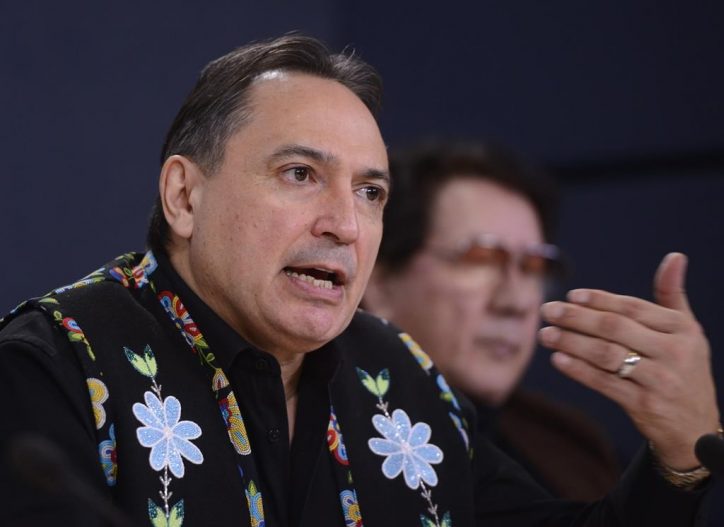The national chief of the Assembly of First Nations (AFN) says an outbreak of COVID-19 in Saskatchewan’s far north is alarming.

Perry Bellegarde noted Tuesday that there’s been a steady rise in cases mainly from in and around the Dene community of La Loche, 600 kilometres northwest of Saskatoon.
He said the English River First Nation’s territory is also in the area and it, too, has reported cases of COVID-19.
Bellegarde said he’s hearing that local leadership needs to be more involved in decision-making and that some northerners haven’t been allowed to travel south to buy food.
“That was a very big issue for a lot of them, because they don’t have access to grocery stores,” he said.
Saskatchewan health officials say more staff have been sent to the area to help track the spread of the novel coronavirus by door-to-door testing and screening.
The province’s public safety agency said a plane was used to fly test samples to Regina.
Right now, most of Saskatchewan’s active cases are in the far north, where restrictions on non-essential travel are being enforced at checkpoints.
‘We’ve said that from Day 1, when this first started hitting, that First Nations communities, First Nations territories, our people are going to be vulnerable because of the overcrowded conditions our people live in,” Bellegarde said.
- ‘Super lice’ are becoming more resistant to chemical shampoos. What to use instead
- Solar eclipse eye damage: More than 160 cases reported in Ontario, Quebec
- Canadian man dies during Texas Ironman event. His widow wants answers as to why
- ‘Sciatica was gone’: hospital performs robot-assisted spinal surgery in Canadian first
“We don’t have access to hospitals in the far north.”
Bellegarde said he believes Saskatchewan is lifting COVID-19 restrictions too quickly in other parts of the province.
On Tuesday, the province said 18 of 20 new cases in the last 24 hours came from in and around La Loche.
Leonard Montgrand, regional contact for the Metis Nation-Saskatchewan, said he feels the provincial government has been providing a lot of support over the last three weeks.
“I think we should have had a lot of support prior to that,” said Montgrand, who added that more consultation with the community is required.
“They don’t understand the community dynamics and how our community is a very social-orientated community,” he said.
“Working with the province in terms of the resource officers… and the other programs that they’re bringing into the community, we do have to communicate more, I will say that.”
Two residents from La Loche’s long-term care centre have died from COVID-19 complications.
Montgrand said most people understand the gravity of the situation, but some residents are tired of the isolation.
Questions about COVID-19? Here are some things you need to know:
Health officials caution against all international travel. Returning travellers are legally obligated to self-isolate for 14 days, beginning March 26, in case they develop symptoms and to prevent spreading the virus to others. Some provinces and territories have also implemented additional recommendations or enforcement measures to ensure those returning to the area self-isolate.
Symptoms can include fever, cough and difficulty breathing — very similar to a cold or flu. Some people can develop a more severe illness. People most at risk of this include older adults and people with severe chronic medical conditions like heart, lung or kidney disease. If you develop symptoms, contact public health authorities.
To prevent the virus from spreading, experts recommend frequent handwashing and coughing into your sleeve. They also recommend minimizing contact with others, staying home as much as possible and maintaining a distance of two metres from other people if you go out.
For full COVID-19 coverage from Global News, click here.





Comments